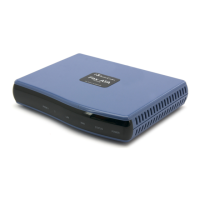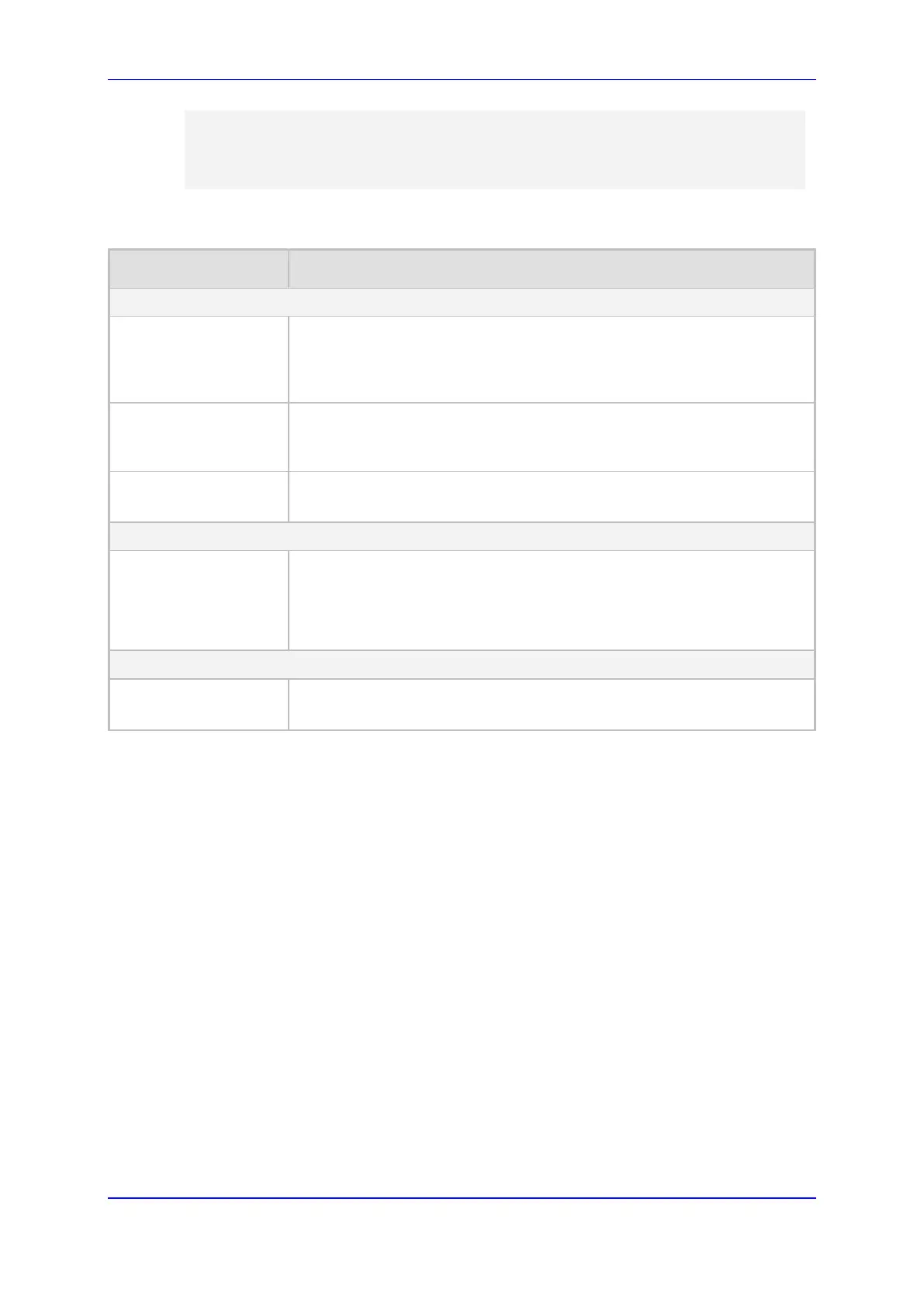User's Manual 9. Configuring VoIP Parameters
Version 4.4.3 89 MP-20x Multimedia Home Gateway
rg_conf/voip/media_port=5004
rg_conf/voip/dtmf_payload=101
rg_conf/voip/g726_payload=98
rg_conf/voip/media_tos=0xb8
Table 9-5: Media Streaming Tab Parameters Description
Parameter Description
Media Streaming Parameters
Local RTP Port Range -
Ports Starting From:
media_port
Defines the port range for Real Time Protocol (RTP) voice transport.
DTMF Relay RFC 2833
Payload Type
dtmf_payload
Defines the RTP payload type used for RFC 2833 DTMF relay packets.
range is 0-255. The default is 101.
G.726/16 Payload Type
g726_payload
Defines the RTP payload type used for 16 kbps G.726 packets. The range
is 0-255. The default is 98.
Quality of Service Parameters
Type of Service (Hex)
media_tos
This is a part of the IP header that defines the type of routing service to be
used to tag outgoing voice packets originated from the device. It is used to
inform routers along the way that this packet should get specific QoS.
Leave this value as 0xb8 (default) if you are unfamiliar with the
Differentiated Services IP protocol parameter.
Codecs
1
- 6
Codec
codec/<1-6>/
Defines the voice codec. For more information, see 9.3.1 on page 89.
9.3.1 Configuring Codecs
Codecs define the method of relaying voice data. Different codecs have different
characteristics, such as data compression and voice quality. For example, G.723 is a
codec that uses compression, so it is good for use where bandwidth is limited but its voice
quality is not as good compared to other codecs such as the G.711.
9.3.1.1 Supported Codecs
To make a call, at least one codec must be enabled. Moreover, all codecs may be enabled
for best performance. When you start a call to a remote party, your available codecs are
compared against the remote party's to determine the codec used. The priority by which
the codecs are compared is according to their order of appearance in the table
(descending order). To change the priorities, rearrange the codecs in the required order.
If there is no codec that both parties have made available, the call attempt fails. Note that if
more than one codec is common to both parties, you cannot force which of the common
codecs that were found are used by the remote party's client. If you do wish to force the
use of a specific codec, leave only that codec checked.

